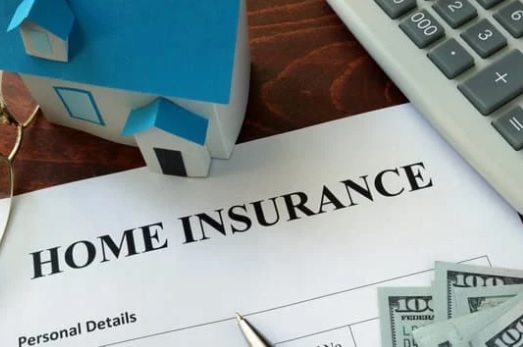Media Coverage
City, victim complete $2M accident settlement

Taibi Law Group Blog
There Is Nothing “Standard” About a Contract: Why Custom Agreements Matter More Than Ever

The time for 2022 Health Insurance Open enrollment is here

Taibi Law Group News
Anthony Taibi published in Trial Briefs Magazine

Anthony Taibi is keynote speaker at University of Connecticut School of Law
| View All | |||
5 Important things to consider before purchasing homeowners insurance |
|||
Bad things often happen when they are least expected. Typically, people only learn that they have a gap in their insurance coverage when it is too late. Issues with a gap in coverage could include losses from storms, flooding, pests, or thieves.
Finding that their insurance is lacking adequate protection is a costly discovery that affects thousands of homeowners each year. The average homeowner’s loss due to inadequate coverage is approximately $12,500, according to the Insurance Information Institute (III). In the case of fire and lighting, which are among the most severe types of claims, the average loss tops $68,000.00. A lack in coverage means you, the homeowner could be forced to pay for enormous losses yourself.
In order to make sure your home is adequately covered; we suggest five important things to keep in mind when deciding on homeowner’s insurance. If you have any doubts about your coverage, call your provider today. Remember: you never know when disaster will strike.
1. FLOODING IS NOT COVERED BY STANDARD HOMEOWNERS INSURANCE
While natural disasters like hurricanes, blizzards and tornadoes are covered, flooding is not. That is a problem since flooding is now one of the most common and costly types of natural disaster in the U.S, due to changing weather patterns and the fact that more homes are being built near large bodies of water. “People are in denial over flood risk,” says III spokesperson Lynne McChristian.
Solution: Even if your risk of flooding is low, consider supplement flood insurance. According to the National Flood Insurance Program, more than 40 percent of flood claims come from properties outside the high-risk flood zones. The average homeowner spends $700 for a flood insurance policy.
2. ALL OF THE BELONGINGS IN THE HOME ARE NOT COVERED
Standard insurance policies typically cover personal belongings including clothing, furniture, and sports equipment. However, very valuable items, say that diamond-encrusted Rolex watch or Saint Laurent evening dress, are subject to limits. As a result, you might only get $1,500 or so even on lost items that are worth many times that amount.
Solution: To have valuables insured to their full value, they will need to be “scheduled”. This process involves having valuables appraised and assigned to a special policy, known as a personal property endorsement or floater. This information should be included in the home inventory that insurance companies advise keeping for all your possessions.
3. IF A HOME IS DESTROYED, THE INSURANCE WILL NOT COVER ITS CURRENT MARKET VALUE
Let’s say your home is destroyed in a hurricane. If it was worth $500,000 at the time, you might assume that is how much the insurance company will pay you. However, insurance is not tied to market value but rather the cost to rebuild a home. This could result in a rude awakening.
Solution: Have an annual call with your insurance provider to make sure your coverage is enough to cover the full cost to rebuild. Any premium increases will likely be minor, but they will make a huge difference in the event of a catastrophe.
4. RENTERS ARE NOT COVERED UNDER THEIR LANDLORD’S POLICY
If you rent an apartment in your landlord’s home and it burns to the ground or gets hit by thieves, their insurance will not do anything for your lost possessions. Unfortunately, only about 40 percent of renters in the U.S. have renter’s insurance, compared to 93 percent of homeowners.
Solution: If you rent a home, purchase renter’s insurance; the average premium is $182 (paid annually) so it is not a major financial burden. And if you are a landlord, require tenants to carry insurance to avoid surprises in the event of a disaster or theft.
5. MOLD, TERMITES AND OTHER INFESTATIONS ARE NOT COVERED
Mold and termites can wreak havoc on a home, rendering it unlivable in a worst-case scenario. To make matters even worse, your insurance company will not pay a dime to help because these infestations are considered maintenance issues and it is up to you to care for your home properly.
Solution: Be on the lookout for any kind of outbreak in the home. Mold thrives in damp areas, so use a dehumidifier if necessary, to keep humidity levels between 30 and 60 percent. Termites often leave cast-off winds along walls and windowsills. The cost to treat termites is around $500, compared with the tens of thousands you might have to pay if the critters ravage your home’s structure.
Conclusion
When it comes to homeowner’s insurance, it is all about being safe, rather than sorry. If you have experienced a loss, read your policy, and contact your insurance company to see if your loss is covered.
If you or your family member have been treated unfairly by an insurance company, we may be able to get the justice and fair compensation you deserve. Insurance companies often pressure you to quickly accept a lowball settlement offer before you know the true cost of your financial damages.
Do not allow that to happen. Contact the experienced lawyers at Taibi Law Group at 919-916-6000 to protect your rights. |


